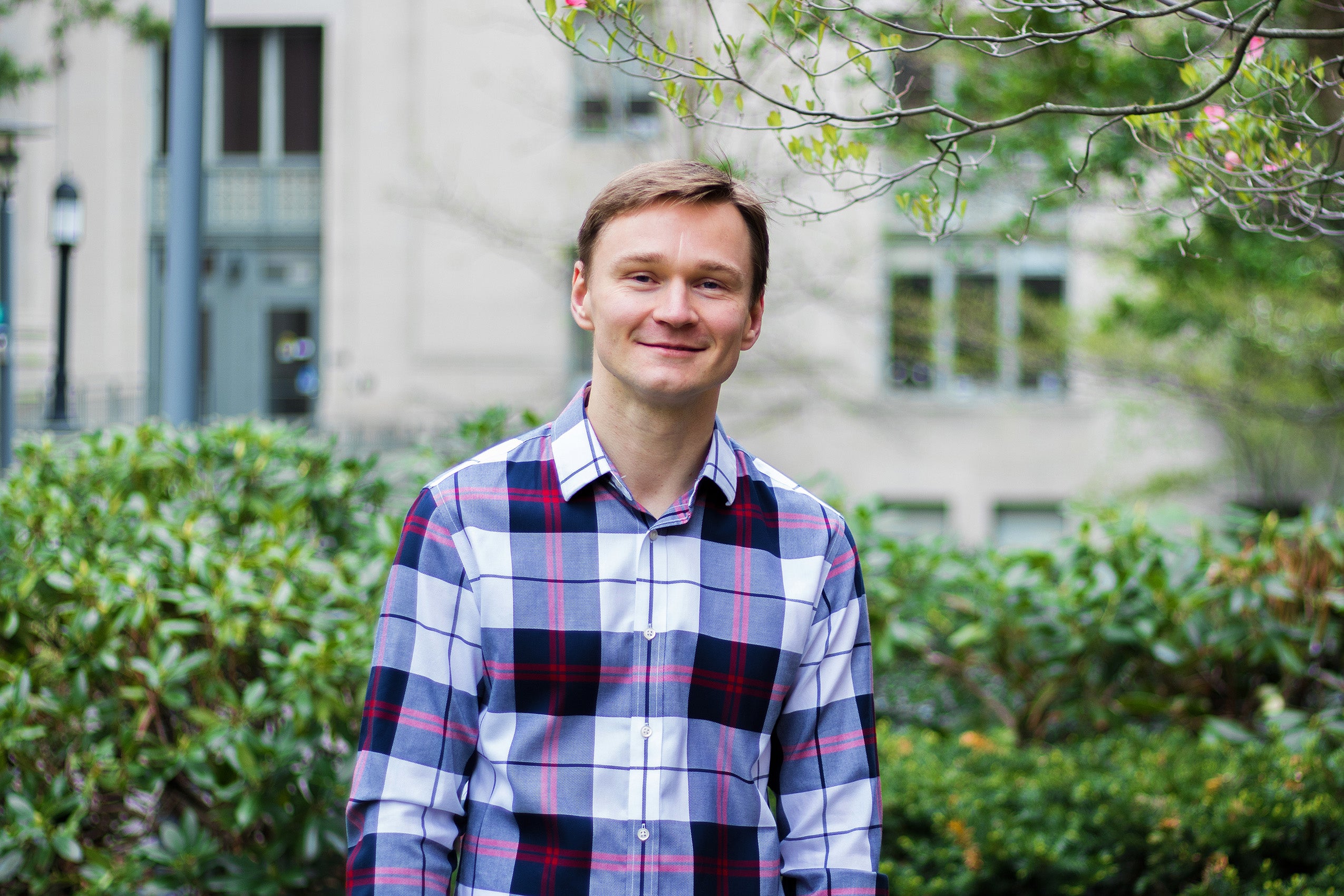This is the sixth in a series of profiles of students from the Harvard Law School Class of 2017.
The subject of Konstantin Tretyakov’s doctoral thesis, the “right to die” and how it is handled in different countries, would be a fascinating one under any circumstances. But as a Russian student who has also studied Chinese law, Tretyakov brings a unique perspective to the topic.
Raised in the north of Russia, Tretyakov earned a Ph.D. in law from Moscow State Institute of International Relations in 2010, two years before coming to Harvard Law School. Like many Russian lawyers he began practicing commercial law just after graduation, working as an in-house lawyer for Alcoa Aluminum. Yet his interests were shifting to philosophical and bioethical issues, which ultimately led to his study at HLS.

“When I first came here there was this fork, this choice,” he says. “You could do the standard thing that a lawyer coming to Harvard would do—and I don’t mean that in any pejorative way—but that would be corporate law, torts or contracts, and then maybe to sit for the New York bar. But I thought that the whole idea of bioethics is understudied in Russia; there are very few academics doing it from a legal perspective.” Tretyakov ultimately sees himself becoming an academic, and the right to die issue seemed a promising one for study. ‘It’s a genuinely contentious area of law and politics, from which very little consensus has emerged so far,’ he says.”
His thesis, titled “”The Right to Die and Organ Transplantation: A Comparative Study of Legal Arguments in the United States and China,” looks at two specific issues—organ transplants and physician-assisted suicide—and how perceptions differ in the U.S. and China. “There are definitely some similarities: When people [in both countries] speak of those issues they discuss the individual welfare of the patients, social utility and the basic good of human life.” Yet cultural differences do emerge: In China there is more consideration of the family, and the issue of individual autonomy is less prominent. In the United States, religion also plays a role, with religious authorities including the Pope being quoted in legal arguments.
In the United States, he notes, different degrees of intervention are allowed in different states: “One form is the withdrawal of life-saving medical treatment; this is legal in all 50 states. Then there is physician-assisted suicide [providing a patient with the means of his or her own death and counseling around it], which was first legalized in Oregon, and the number of states which have embraced it is growing. Finally there is voluntary euthanasia, [by] lethal injection. This is illegal anywhere in the U.S., but it was legalized in Canada in 2015.” In China, the situation is more complex, he say. Because norms are more rigid, there is less variation between regions. “But at the same time, there are no formal laws enacted by the government. On one hand you see the rigidity of legal doctrine, but on the other it’s more flexible because of the absence of black letter rules. In that way, the regulations are like reading tea leaves.”
His own feelings on the topic are also nuanced. “I think that if you have legalized withdrawal [of life-saving treatment], then it also makes sense to legalize the prescription. We hear a lot about the potential negative effects of physician-assisted suicide—for instance, that it would target the poor, the elderly, the most vulnerable aspects of the population. I have yet to see empirical analysis to prove those claims are true. As far as I’m concerned, medical assistance in dying is a legitimate way of taking care of the medical needs of the patient who cannot be helped otherwise.”
Tretyakov plans to spend the next year clerking at the Massachusetts Appeals Court, and ultimately to be an academic specializing in health law and bioethics from the comparative law perspective. As HLS’s first Russian S.J.D. candidate in at least two decades, Tretyakov found a few notable differences between legal studies in the United States and Russia. “In Russia most classes are non-elective and during your first couple of years in law school, you study theory of law along with ethics, philosophy, history of Russia, world history, psychology. They basically try and cram everything into your head at once. You’re supposed to make the decision that will define your whole life at 17, and by 23 you’re pretty much finished with higher education. Also in Russia, the study of law tends to be a little more dogmatic than here. At Harvard they teach law as a system of arguments, and expect you to argue with fellow students and professors. That is definitely different from what we have in mother Russia.”
Another difference he found was more basic. “I was surprised to find we have no classes on Saturday. That to me is awesome.”
